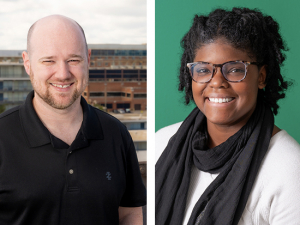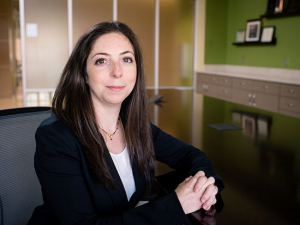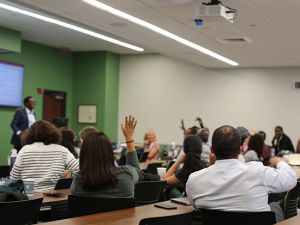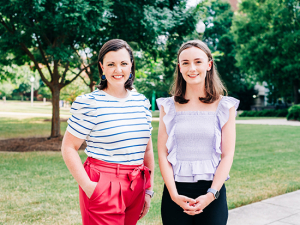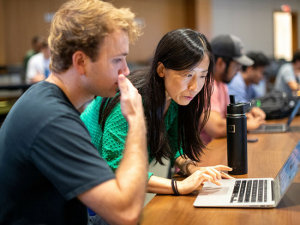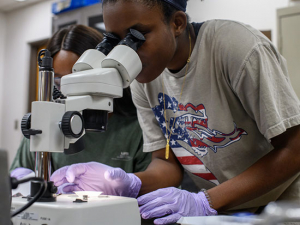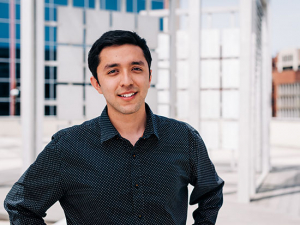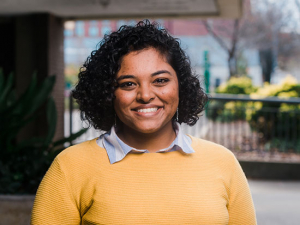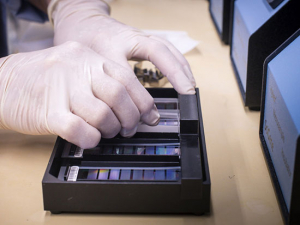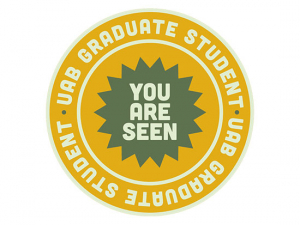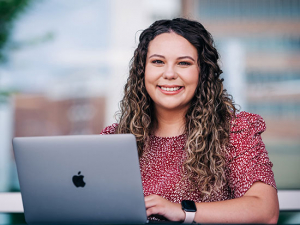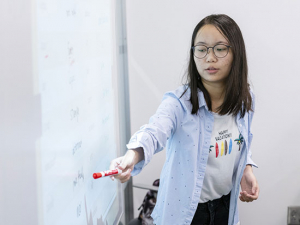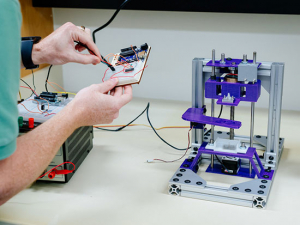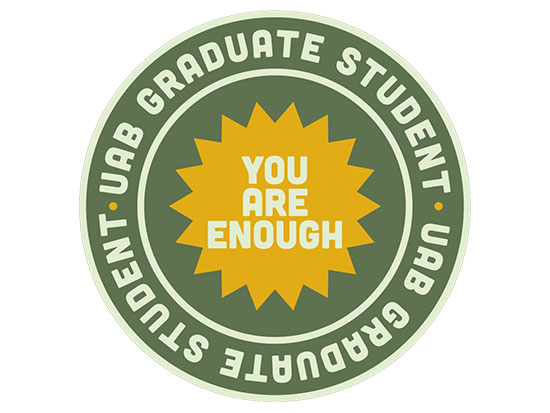 Graduate students and postdocs in a course on advanced mental health promotion created stickers (an example is above), social media posts (see below) and events to encourage graduate students during Stress Less Week, Nov. 29-Dec. 3.The end of any semester and beginning of the holidays can lead to despair in the best of times, let alone during a pandemic.
Graduate students and postdocs in a course on advanced mental health promotion created stickers (an example is above), social media posts (see below) and events to encourage graduate students during Stress Less Week, Nov. 29-Dec. 3.The end of any semester and beginning of the holidays can lead to despair in the best of times, let alone during a pandemic.
Graduate students and postdoctoral fellows in a course titled Advanced Mental Health Promotion and Professional Development: Service Learning have spent the semester doing a deep dive into evidence-based approaches and innovative service delivery models. With finals just over the horizon, they are taking action in a series of in-person and online events Nov. 29 to Dec. 3: celebrated across campus as Stress Less Week.
Stress Less Week events
Throughout the week, the students will raise awareness about graduate student mental health and share messages of encouragement on social media. On Dec. 2, they will engage with graduate students outside of the Graduate School’s main office in Lister Hill Library from 11:30 a.m. to 1:30 p.m. and distribute custom stickers they have designed.
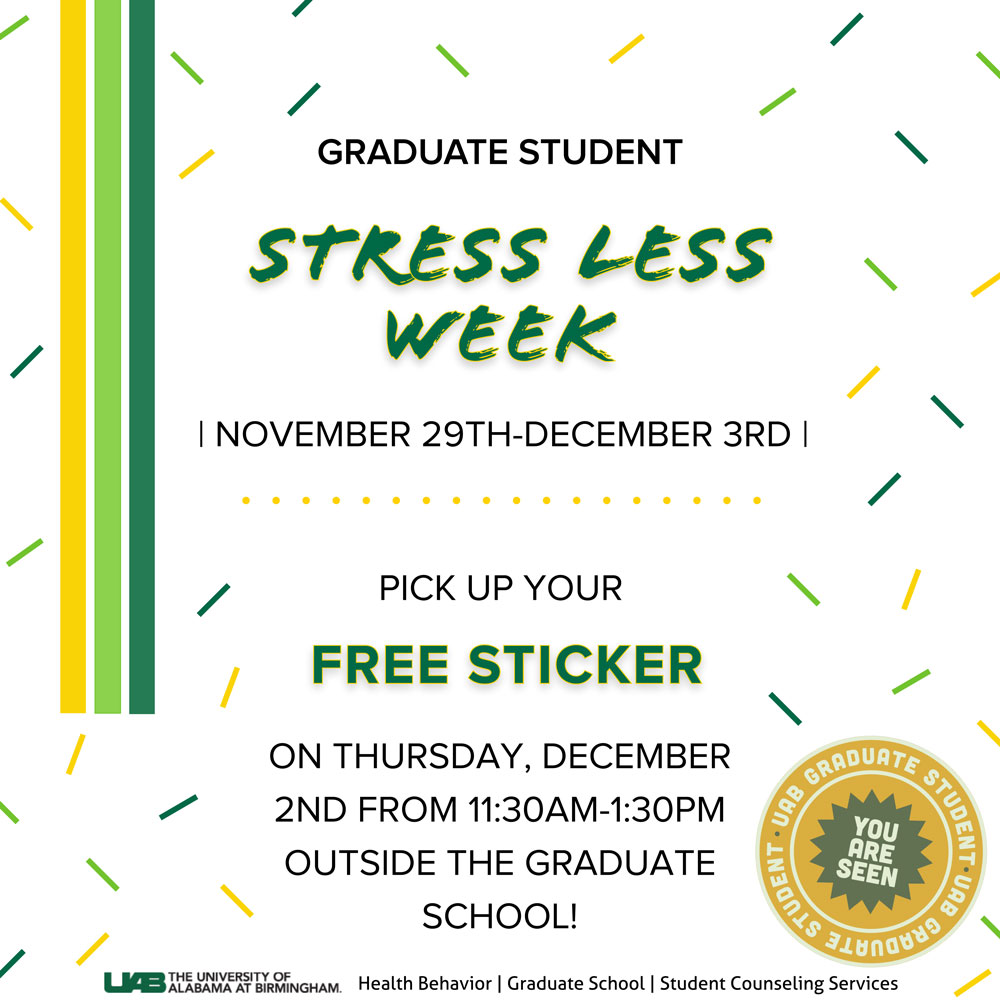
The stickers and social media messages will help graduate students “recognize that they are appreciated and seen,” said Destyni Cravens, who is a member of the Health Behavior MPH program. The students also will help create and support graduate school mental health promotion efforts in a multi-group event in the Hill Student Center Ballroom from 8:30 a.m. to 1 p.m. Dec. 2, which will include meditation, mindfulness, arts and exercise opportunities. They will conclude Stress Less Week on Dec. 3 with an Instagram Live chat titled Mental Health in Graduate School, which will be held on the Student Counseling Services Instagram account (@uabscs) and available on the Graduate School (@uabgradschool) and UAB Mental Health Ambassadors (@uabmha) accounts as well.
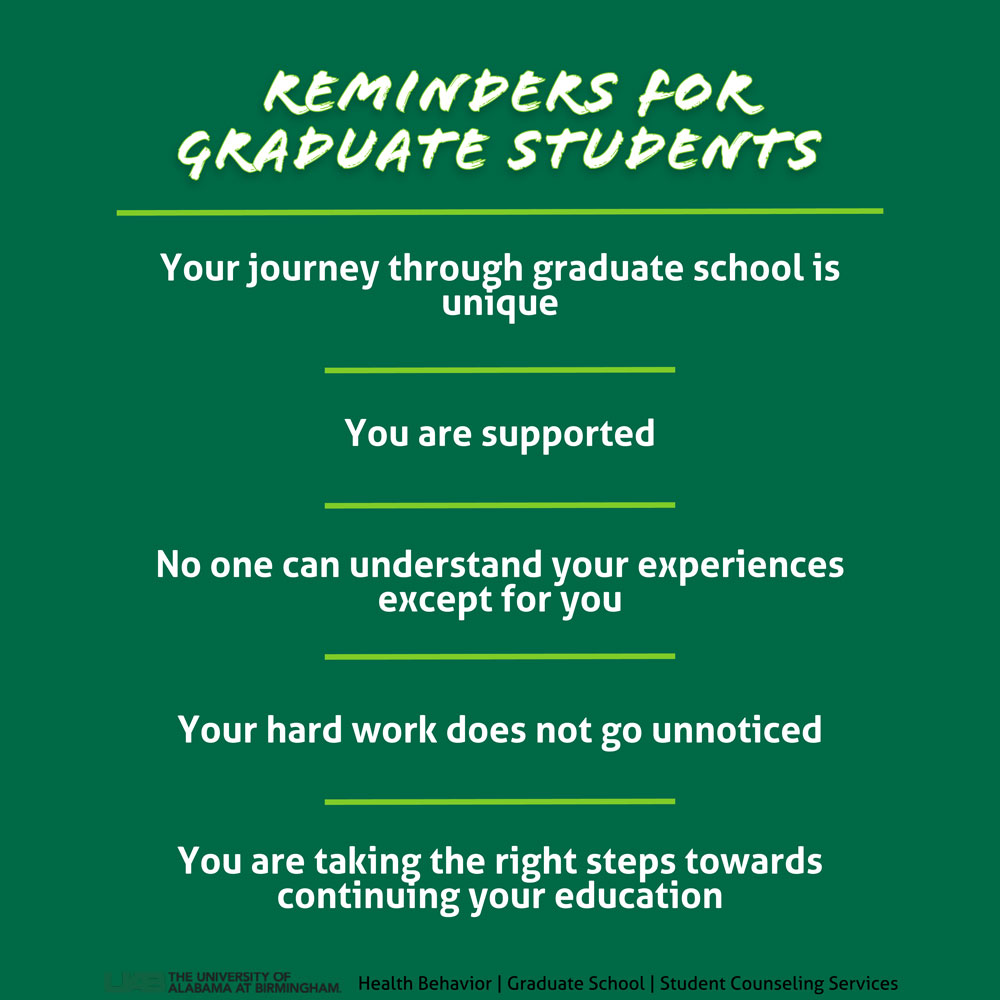
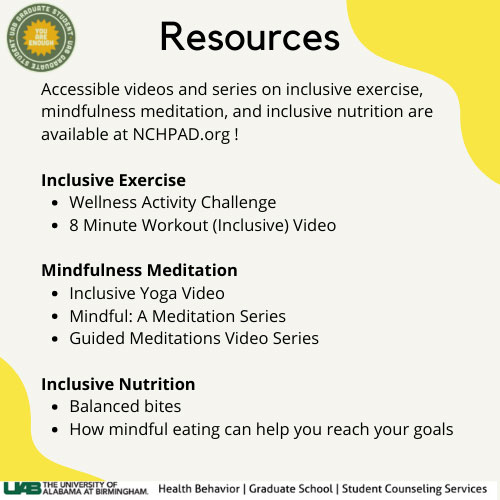 The goal of all the week’s activities is to provide “support to graduate students in ways that are actionable during the end of the semester, which can be a stressful time,” said Laurence Boitet, Ph.D., who is a postdoctoral fellow in the Department of Health Behavior.
The goal of all the week’s activities is to provide “support to graduate students in ways that are actionable during the end of the semester, which can be a stressful time,” said Laurence Boitet, Ph.D., who is a postdoctoral fellow in the Department of Health Behavior.
Kalani Upshaw, a Community Health Educator with the UAB National Center on Health, Physical Activity and Disability, is providing information on resources available from UAB's Disability Support Services (DSS) for graduate students. The goal is to make DSS more accessible to graduate students who need it but might not be aware of services, Upshaw said: "My aim in participating in this mental health promotion course was to uplift and support graduate students living with a disability here at UAB. Stress Less Week provided us with an opportunity to spread encouraging messages through social media along with DSS resources that can support students throughout their academic journey."
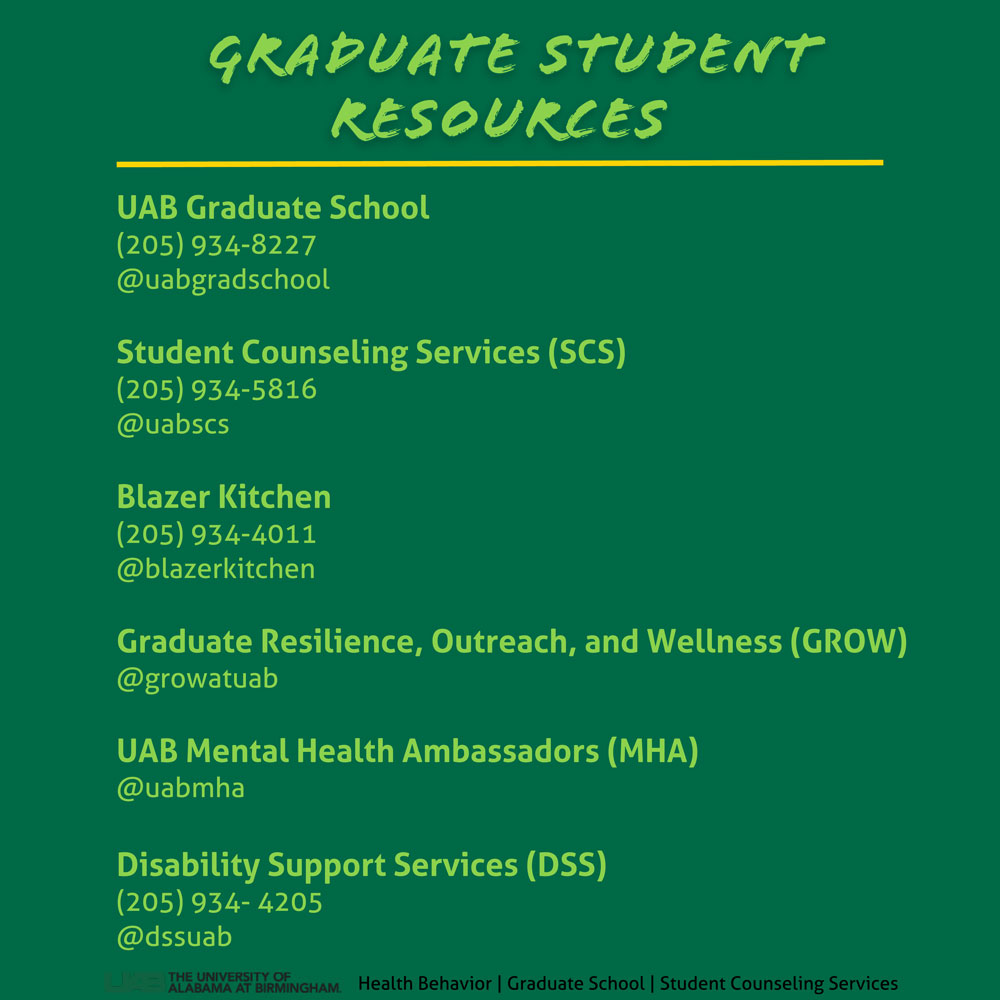
Support in a challenging time
Cravens, Boitet and Upshaw are all enrolled in the Advanced Mental Health Promotion course, which was developed collaboratively by Robin Lanzi, Ph.D., professor and graduate program director in the Department of Health Behavior; Angela Stowe, Ph.D., director of Student Counseling and an adjunct faculty member in the department; and Lisa Schwiebert, Ph.D., interim dean of the Graduate School. The advanced course, first offered in fall 2020, builds on an initial Mental Health Promotion graduate course developed by the trio in fall 2019 that was first taught in spring 2020.
The initial concept for the courses came from the Suicide Prevention Leadership and Implementation Team at UAB as one of the strategies to meet recommendations of the university’s Suicide Prevention Task Force to support graduate students and postdoctoral fellows. Stowe, Lanzi and Schwiebert have received two mini-grants from the UAB Office of Service Learning and Undergraduate Research to support the project.
“It has been such a challenging time — students are going through a lot,” Lanzi said. “We are extremely fortunate to have students who care so deeply and passionately for one another. Providing students information, resources and tools, along with space to discuss, process and strategize initiatives to see their visions come to light, is beautiful.”
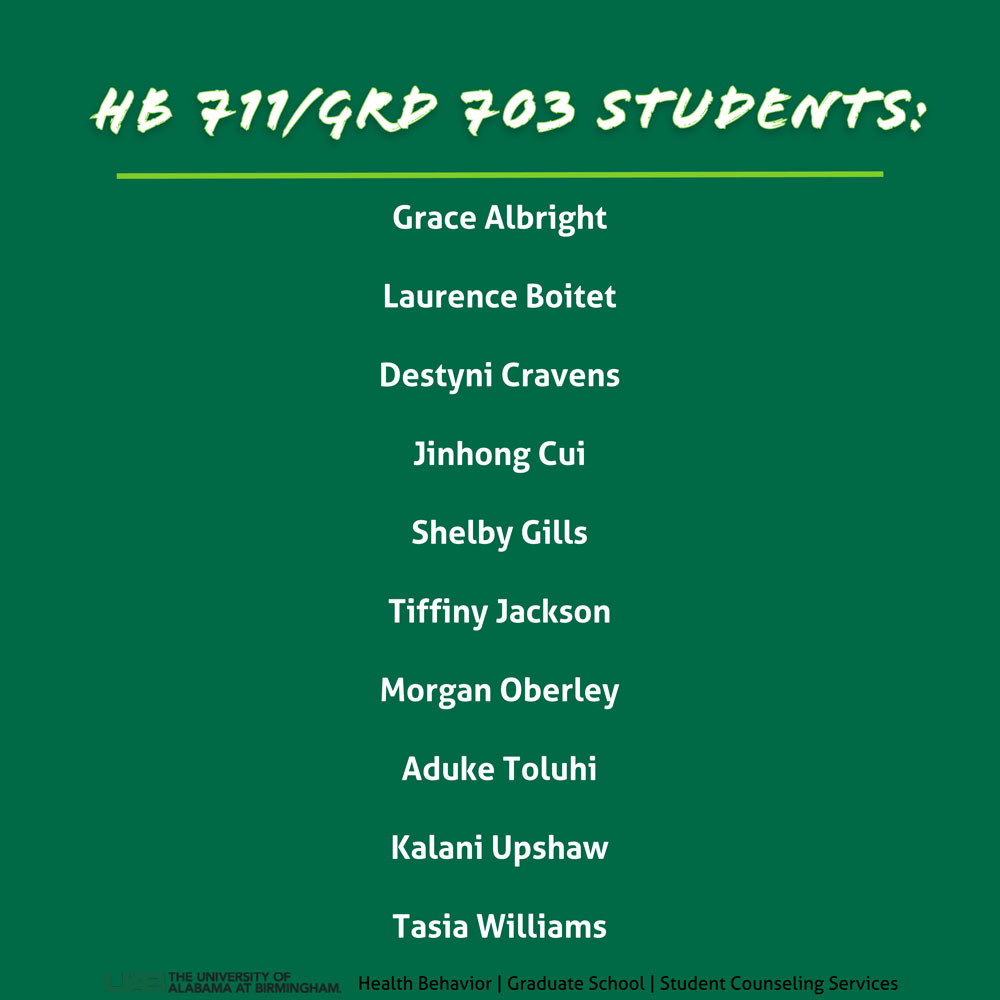
‘Student-led, student-driven, student-focused’
Students enrolled in the Advanced Mental Health Promotion course come from a variety of backgrounds and careers, Stowe said: “Some are interested in mental health careers in public health or clinical work; others want to learn how to support the mental health of students as they work on careers as mentors and faculty.” Others come to the course “out of their own personal or family experiences with mental health and a desire to learn more, raise awareness and decrease stigma, and support students.”
In the first Advanced Mental Health Promotion class in fall 2020, students developed two service-learning projects: a virtual mentoring toolkit that provides guidance for mentors and mentees on mentoring in a virtual world and a train-the-trainer facilitator guide for the Kognito platform, which helps students, faculty and staff learn how to have effective conversations with students at risk for suicide. “Each semester we offer the course, we are intentional that the service-learning projects are student-led, student-driven, student-focused and relevant to the time,” Lanzi said.
For the fall 2021 class, “as the students discussed the mental health needs of graduate students, it was clear that students needed to hear — and our class wanted to share — encouragement, affirmation and hope,” Stowe said. “They recognize that students are tired and struggling and that words of encouragement and affirmation can provide some light for students and let them know that they are cared for and seen.”
Cravens said she appreciates how the course has given her the opportunity “to advocate and implement strategies for graduate students to promote their mental health.” Schwiebert added that is precisely why she, Lanzi and Stowe developed the class: “Providing graduate students with resources that lessen the impacts of the pandemic on mental health and offer hope is a top priority for the Graduate School.”
Special thanks to Angelina Aduke Toluhi for her help in writing this article
